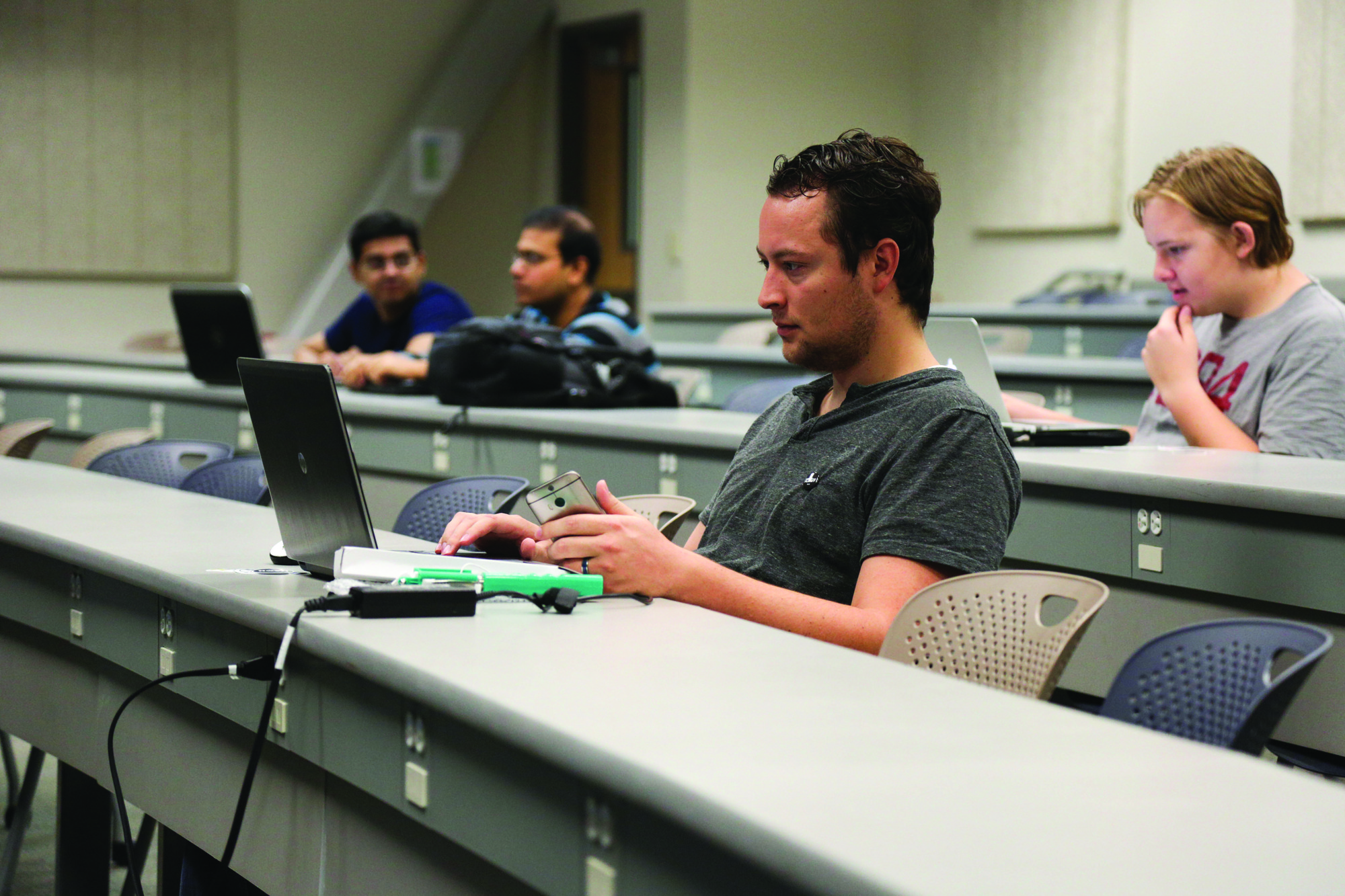The Internet: Inconvenience or lifesaver for students?
It’s hard to get by without Internet-enabled devices, especially for college students.
In today’s world, students must consider how and when they can access the Internet for things like online homework, online textbooks and electronic applications for scholarships.
“It’s kind of culture now,” said Hannah Honey, a family, consumer and human development sophomore.
Because of these uses and portability of the Internet, some Utah State University students were asked a two questions: If they owned a smartphone, and if it was inconvenient when they needed to use the Internet for certain things.
Even though the sample cannot be considered representative of the student population here at USU, the results showed of the 67 students surveyed, 66 of them owned a smartphone. Only 19 said it was inconvenient at times to use the Internet.
In addition, 13 of those 19 students said it was only inconvenient when they had connection problems. That left only six people who thought it was inconvenient for other reasons.
“It’s not very personal, but it’s faster,” said Maddison Lund, a psychology sophomore, on using the Internet.
When it comes to using the Internet for homework purposes, civil engineering sophomore Eric Kwiatkowski said it’s more convenient to talk to the teacher than figuring it out online.
But despite these two opinions, the Internet is apart of everyday life for most students.
Perhaps even more interwoven with technology are students with majors like management information systems, or MIS, and computer science. Graduates in these majors often have futures and careers that depend on the advancement of technology. Like Alex Lutz, a MIS sophomore and organizer of hackUSU.
“If the Internet went down, the whole nation would be up a creek,” he said.
Despite this observation,Lutz said he believes that technology can change lives for the better. He is excited for the day that he can have groceries delivered directly to his home.
Other students agree that technology has definite benefits. In fact, it can be a way of connecting with people thousands of miles away with virtually no delay.
“I get to talk with my relatives even though I am here and they are in India,” said Vinay Kairamkonda, a computer science graduate working on a masters in MIS.
The Internet makes many incredible things possible. It can provide instant updates on the latest news from around the world or from high school pals.
And the Internet’s influence has only grown. According to the Pew Research Center’s study “U.S. Smartphone Use in 2015,” 64 percent of America’s adult population owns a smartphone, as compared to 58 percent in early 2014. That’s about two-thirds of the population with a device connected to the Internet, and it’s still growing.
To some, electronic connectivity has become an expectation. Wi-Fi is sorely missed when it is not present or working correctly. Document writers, spreadsheet applications and Canvas are a part of students’ educational diet.
But even if it isn’t much of a problem to find a computer lab, most college students depend on technology.
— lanbob@sbcglobal.net

